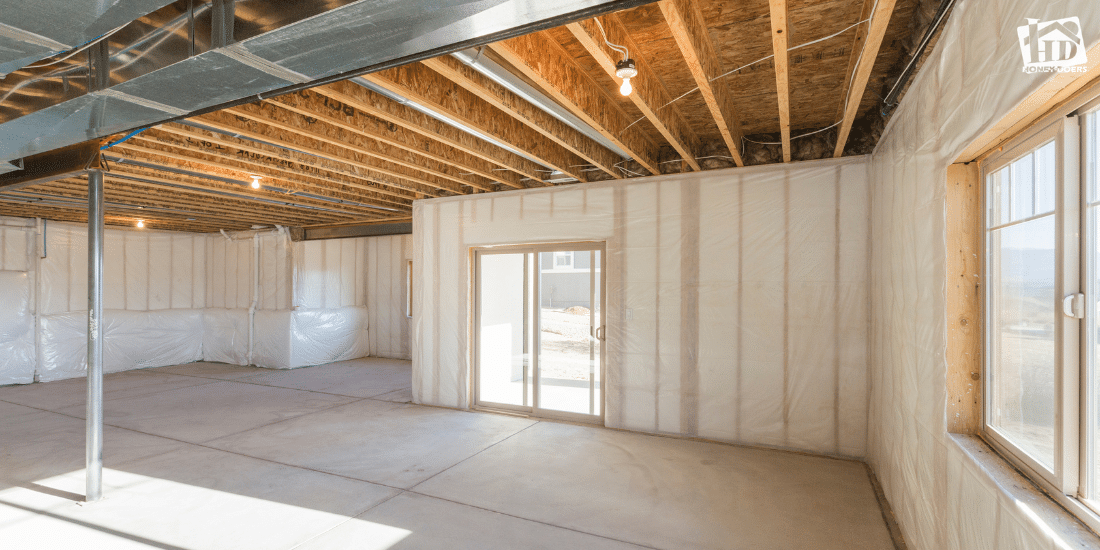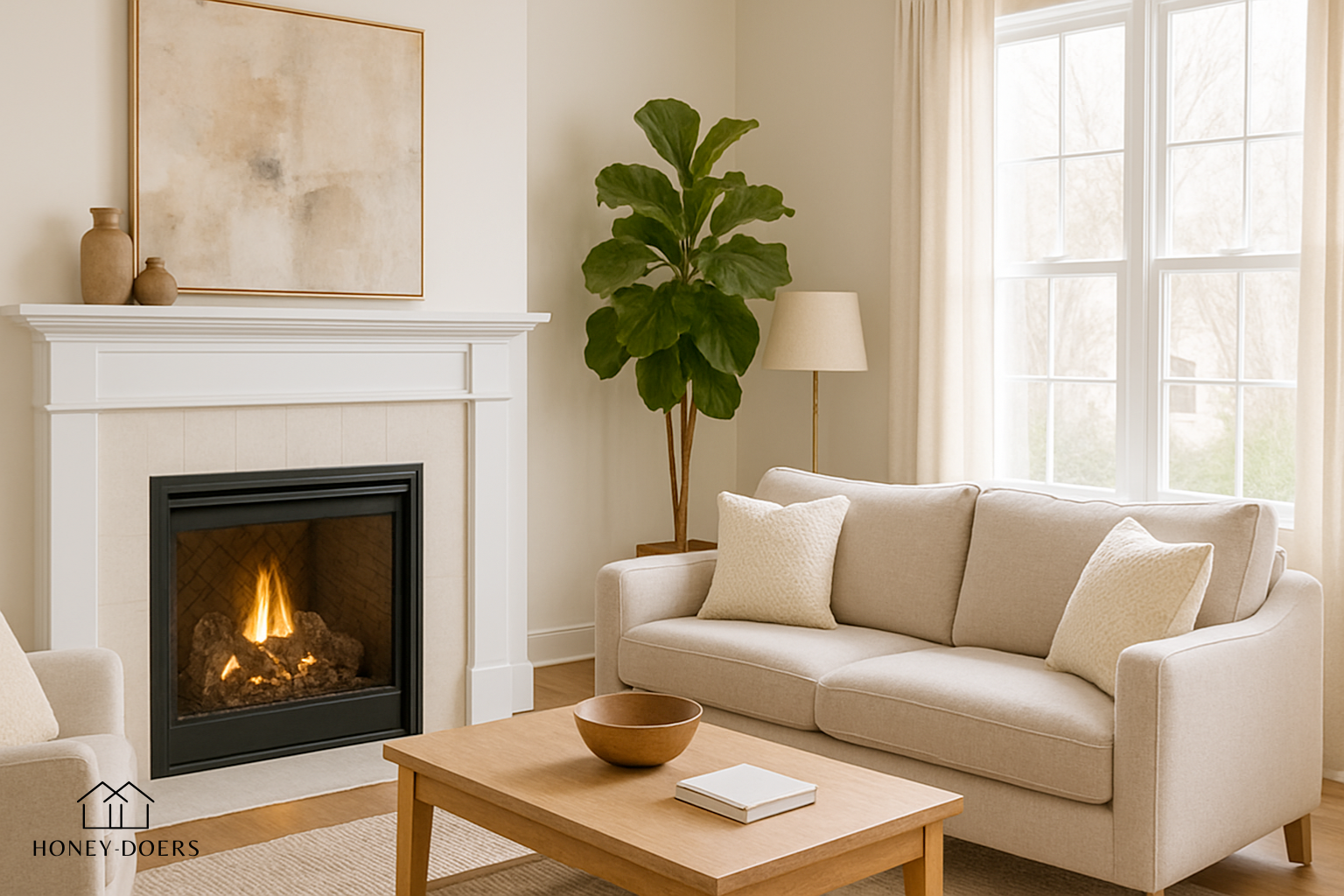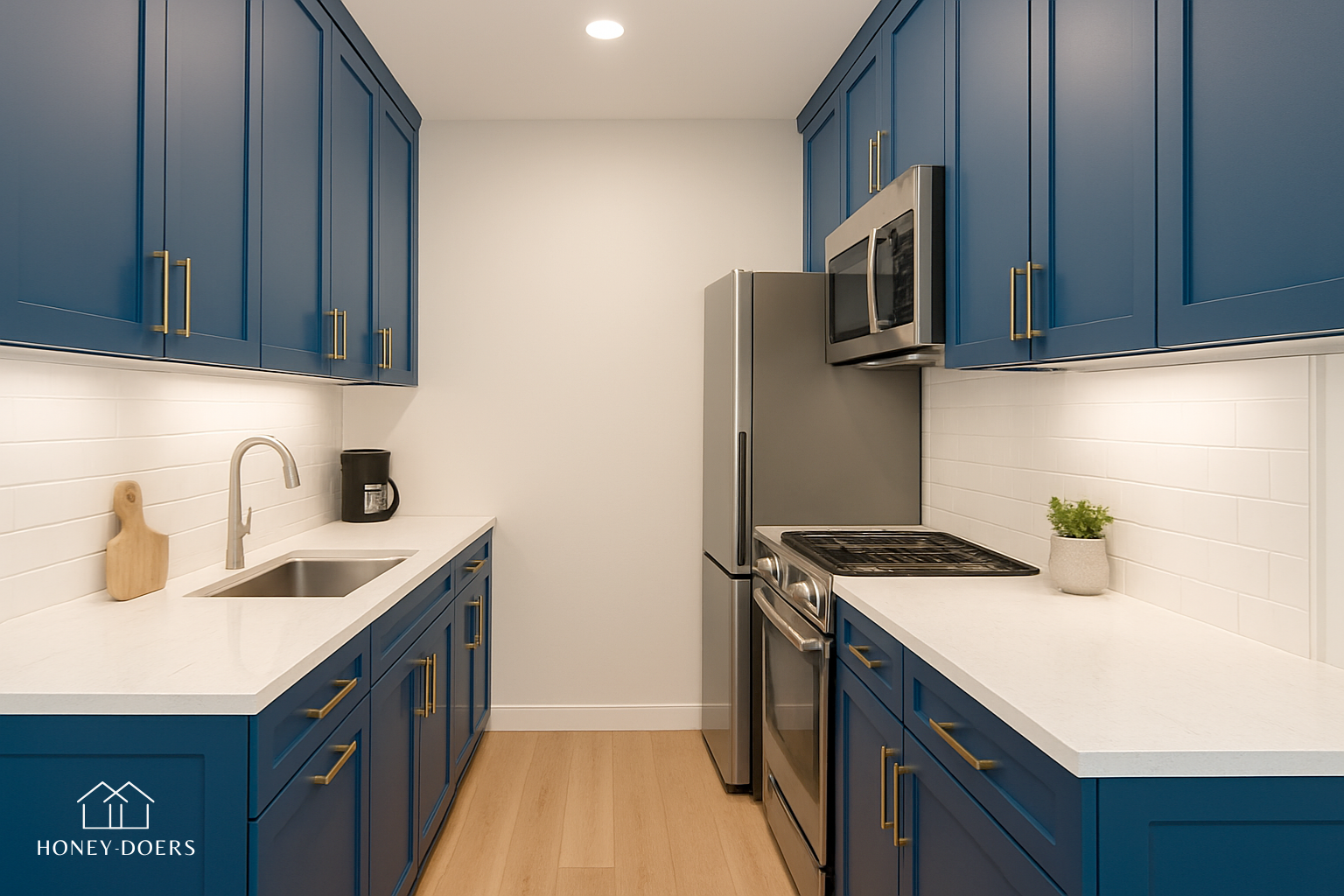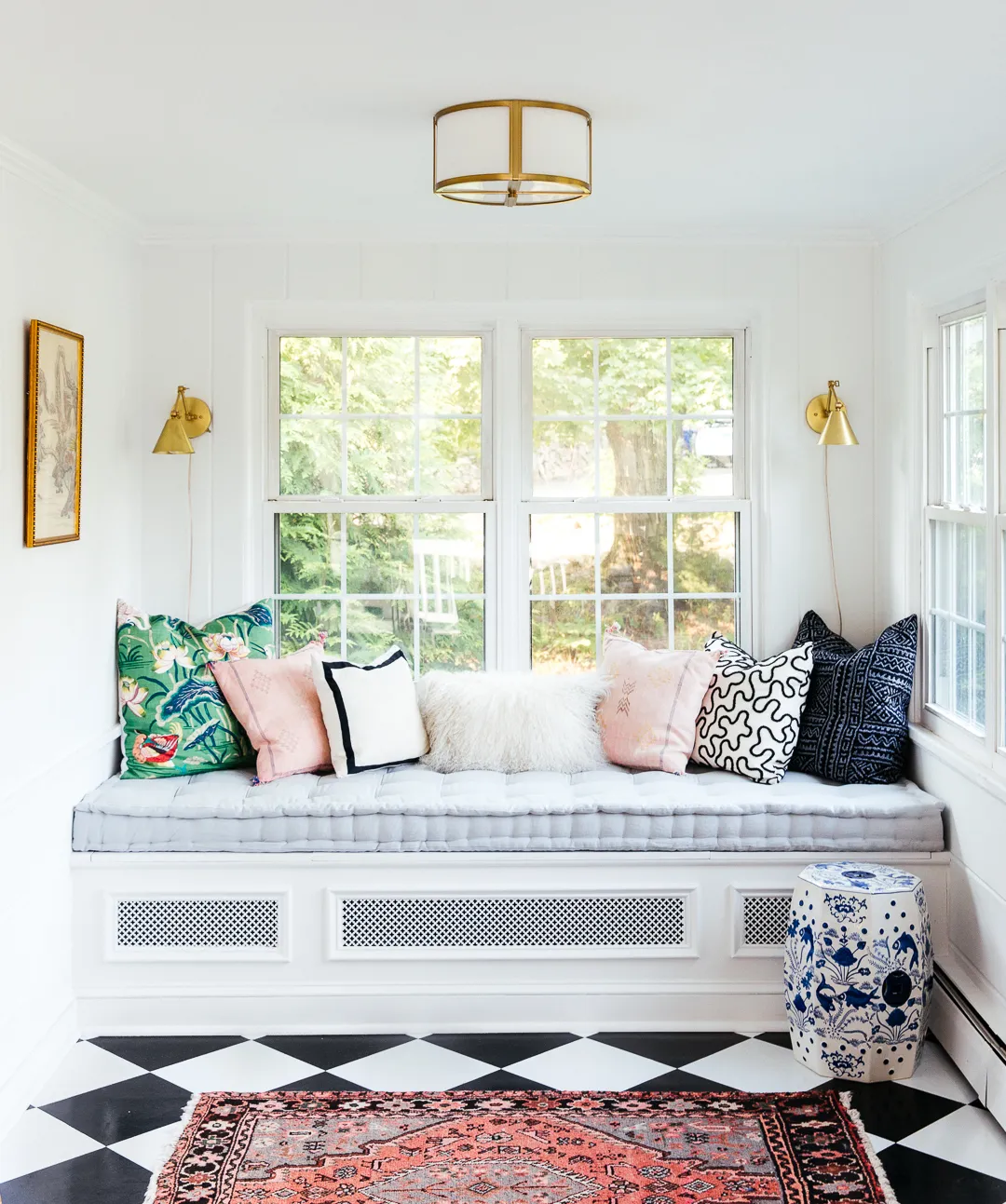Introduction: Why Flooring Matters in a Finished Basement
Finishing your basement is one of the smartest ways to increase livable space and boost home value. But before you start imagining a cozy family room or home theater, flooring decisions deserve special attention. Unlike main-level spaces, basements come with unique challenges: concrete subfloors, fluctuating temperatures, and the ever-present risk of moisture. In fact, 98% of basements will experience some kind of water damage in their lifetime, making flooring one of the most critical investments in a basement remodel.
The goal of this guide is to help Minnesota homeowners make smart choices about flooring materials—balancing durability, comfort, cost, and design—so your finished basement stands the test of time.
Key Considerations Before Choosing Basement Flooring
Before deciding on materials, it’s important to understand the conditions every basement faces:
- Moisture Resistance: Basements are prone to leaks, condensation, and even flooding. Flooring must be water-resistant—or better yet, waterproof—to avoid costly damage.
- Temperature Swings & Insulation: Concrete subfloors stay cold year-round. Good insulation under your flooring improves comfort and energy efficiency.
- Concrete Subfloors: Unlike upstairs rooms built on wood subfloors, basements often require vapor barriers, underlayments, or adhesives designed specifically for concrete.
- Maintenance: A durable, easy-to-clean surface is ideal in high-use spaces like playrooms or home gyms. Materials like vinyl and tile outperform carpet in this area.
- Cost Factors: Price varies widely—from budget-friendly vinyl to high-end epoxy finishes. Consider both upfront costs and long-term maintenance when planning.
By weighing these factors first, you can select the flooring that will not only look great but also handle the unique demands of basement living.
Vinyl Plank Flooring
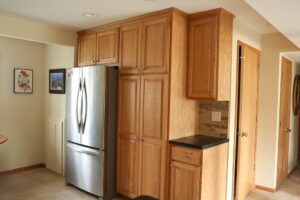
Vinyl plank flooring (often sold as luxury vinyl plank, or LVP) is one of the most popular basement flooring ideas today. Made from layers of PVC, it’s completely waterproof, making it ideal for below-grade installations.
- Pros: Excellent moisture resistance, wide variety of colors and textures, mimics the look of hardwood at a fraction of the cost, and softer underfoot than tile. It’s also pet-friendly and scratch-resistant.
- Cons: While highly durable, lower-end planks may scratch or dent under heavy furniture. Some products require precise subfloor prep.
- Cost: $2–$5 per sq. ft. for materials, plus $2–$3 per sq. ft. for professional installation.
- Best Use: Family rooms, playrooms, or anywhere you want the look of hardwood without the risk of water damage.
Vinyl flooring for basements is a top recommendation due to its mix of style, resilience, and budget-friendliness.
Engineered Hardwood Flooring
For homeowners who love the warmth and authenticity of real wood, engineered hardwood offers a basement-friendly option. Unlike solid hardwood, it’s made of a hardwood veneer bonded to layers of plywood, giving it more stability against moisture.
- Pros: Natural wood look and feel, available in many species (oak, maple, cherry), and less prone to warping than solid hardwood.
- Cons: Still not fully waterproof—prolonged exposure to moisture can cause damage. Requires controlled humidity levels.
- Cost: $4–$7 per sq. ft. for materials, plus $3–$4 per sq. ft. for installation.
- Best Use: Basements with reliable moisture control systems (sump pump, dehumidifier). Great for homeowners who prioritize luxury aesthetics.
Ceramic Tile Flooring
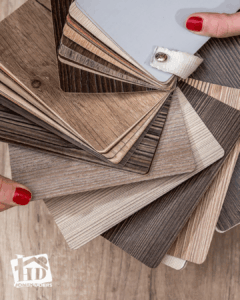
Ceramic tile is a tried-and-true material for basements, especially where water exposure is a concern.
- Pros: Completely waterproof, highly durable, and available in endless colors, patterns, and textures—including wood-look tiles. Easy to clean and resistant to stains.
- Cons: Cold and hard underfoot, which may require radiant heating or area rugs for comfort. Grout lines can stain if not sealed properly.
- Cost: $3–$10 per sq. ft. for tile, plus $5–$10 per sq. ft. for installation.
- Best Use: Bathrooms, laundry rooms, and entryways in basements where water resistance is essential.
Tile flooring that looks like wood is especially popular, giving homeowners a hardwood look without the moisture headaches.
Epoxy-Coated Concrete Flooring
For an industrial-modern look, epoxy-coated concrete is both stylish and resilient. Applied as a liquid over the existing slab, it cures into a seamless, waterproof surface.
- Pros: 100% waterproof, chemical- and stain-resistant, easy to clean, and customizable with colors, flakes, or metallic finishes. Extremely durable with low maintenance.
- Cons: Requires professional installation, can feel cold and hard, and surface prep is critical. Repairs can be costly if the coating cracks.
- Cost: $3–$12 per sq. ft. depending on design complexity.
- Best Use: Home gyms, workshops, and modern entertainment spaces.
Carpet Tiles vs. Wall-to-Wall Carpet
Many homeowners love the warmth of carpet in a basement, but traditional wall-to-wall carpet is a recipe for mold and mildew in a moisture-prone environment. Carpet tiles are a safer and smarter alternative.
- Pros: Softer and warmer underfoot than vinyl or tile, easy to install, and if one tile gets wet or stained, it can be replaced individually. Available in many colors and patterns.
- Cons: Not waterproof, requires vigilance against spills and leaks. Higher humidity can shorten lifespan.
- Cost: $1–$3 per sq. ft. for tiles, plus minimal DIY installation costs.
- Best Use: Media rooms or playrooms where comfort is a top priority.
Avoid full carpet installs in basements—stick with carpet tiles or area rugs layered over waterproof floors.
Cost Comparison Chart
| Flooring Type | Material Cost (per sq. ft.) | Installed Cost (per sq. ft.) | Waterproof | Comfort | Maintenance |
| Vinyl Plank (LVP) | $2–$5 | $4–$8 | Yes | ★★★★☆ | Low |
| Engineered Hardwood | $4–$7 | $7–$11 | Limited | ★★★★☆ | Medium |
| Ceramic Tile | $3–$10 | $8–$20 | Yes | ★★☆☆☆ | Low |
| Epoxy-Coated Concrete | $3–$12 | $5–$15 | Yes | ★★☆☆☆ | Very Low |
| Carpet Tiles | $1–$3 | $2–$4 (DIY-friendly) | Limited | ★★★★★ | Medium |
Installation Guidance: DIY vs. Professional Help
Some basement flooring ideas are DIY-friendly, like carpet tiles or floating vinyl planks. Others, such as tile or epoxy coatings, require professional tools and expertise for a quality finish. Regardless of material, moisture testing and vapor barrier installation are non-negotiable steps to protect your investment.
Honey-Doers Remodeling helps homeowners evaluate their basement conditions and choose the right installation method—saving time, avoiding costly mistakes, and ensuring lasting results.
Basement Maintenance Tips to Protect Flooring
Even the best flooring can be ruined without proactive moisture management. To extend the life of your investment:
- Clean and repair gutters to direct water away from your foundation./
- Run a dehumidifier in humid months.
- Inspect and seal basement cracks promptly.
- Install a vapor barrier before laying new flooring.
- Use area rugs in high-traffic spots to reduce wear.
Conclusion: A Floor That Fits Your Lifestyle
The best basement flooring isn’t one-size-fits-all—it depends on your goals, budget, and how you’ll use the space. From waterproof basement flooring like vinyl planks and ceramic tile to the warmth of carpet tiles or the modern appeal of epoxy, there’s a solution for every family.
At Honey-Doers Remodeling, we specialize in helping Minnesota homeowners finish their basements with durable, beautiful flooring that increases comfort and value. Contact us today to explore your basement flooring options.


